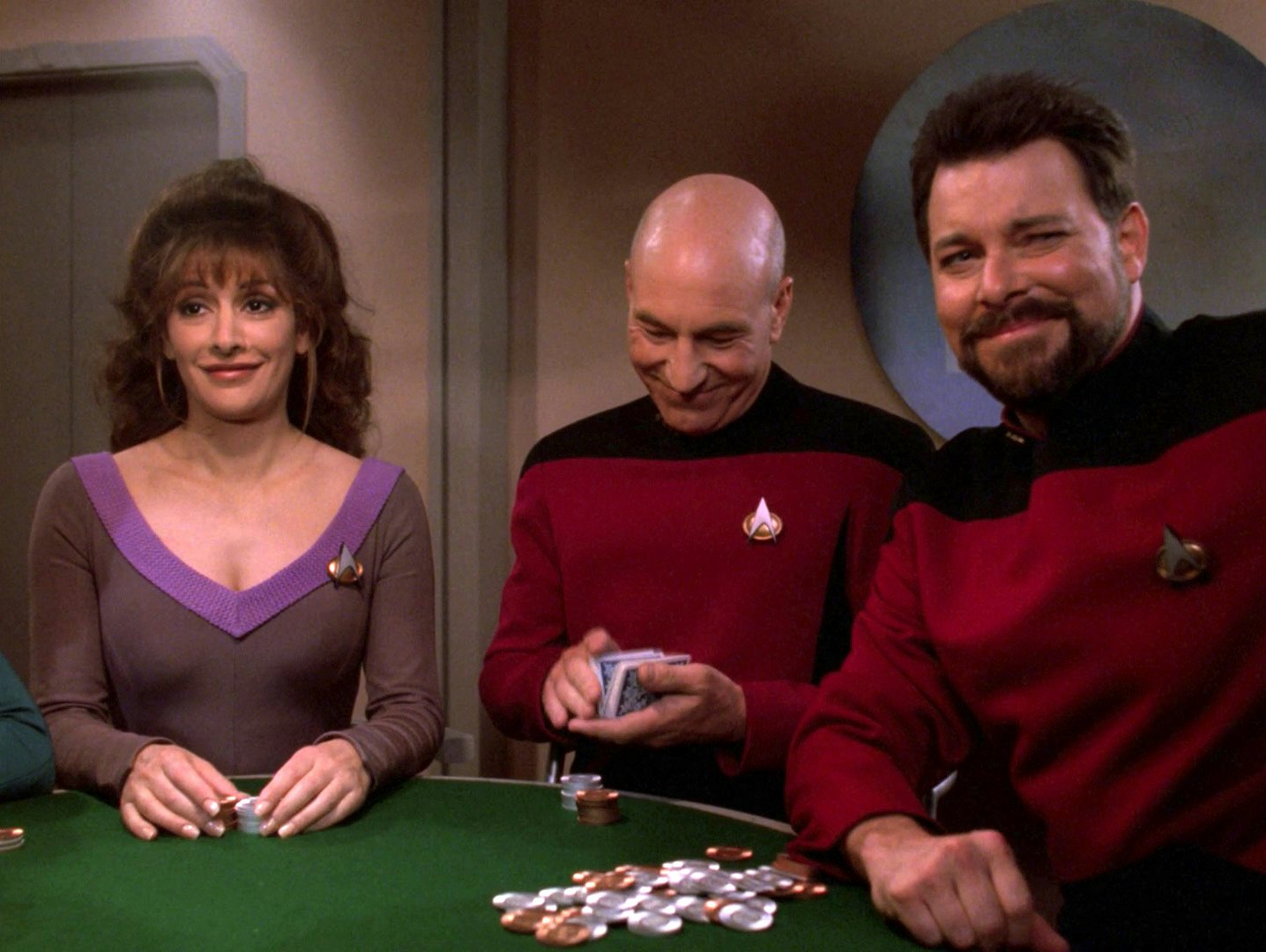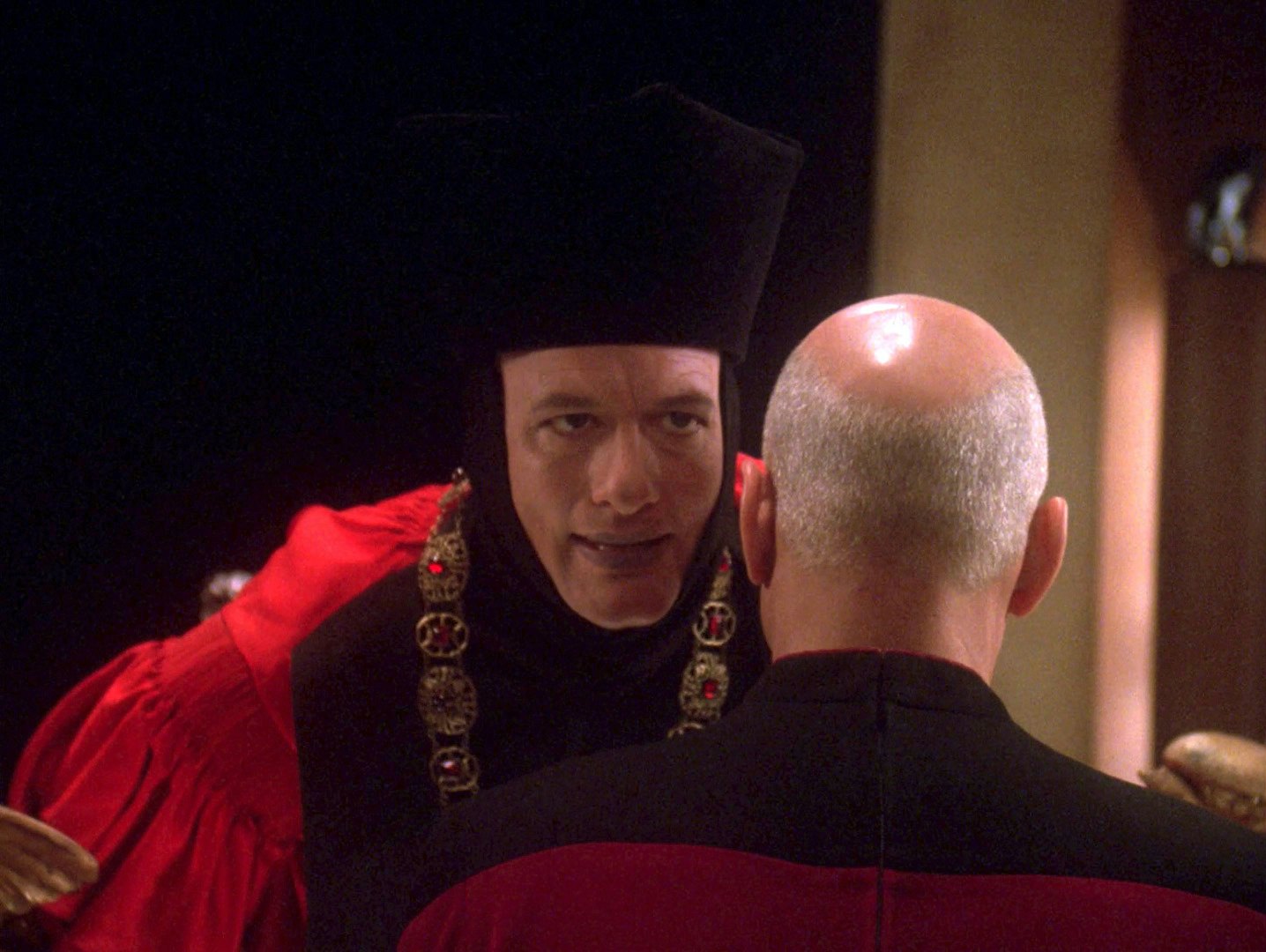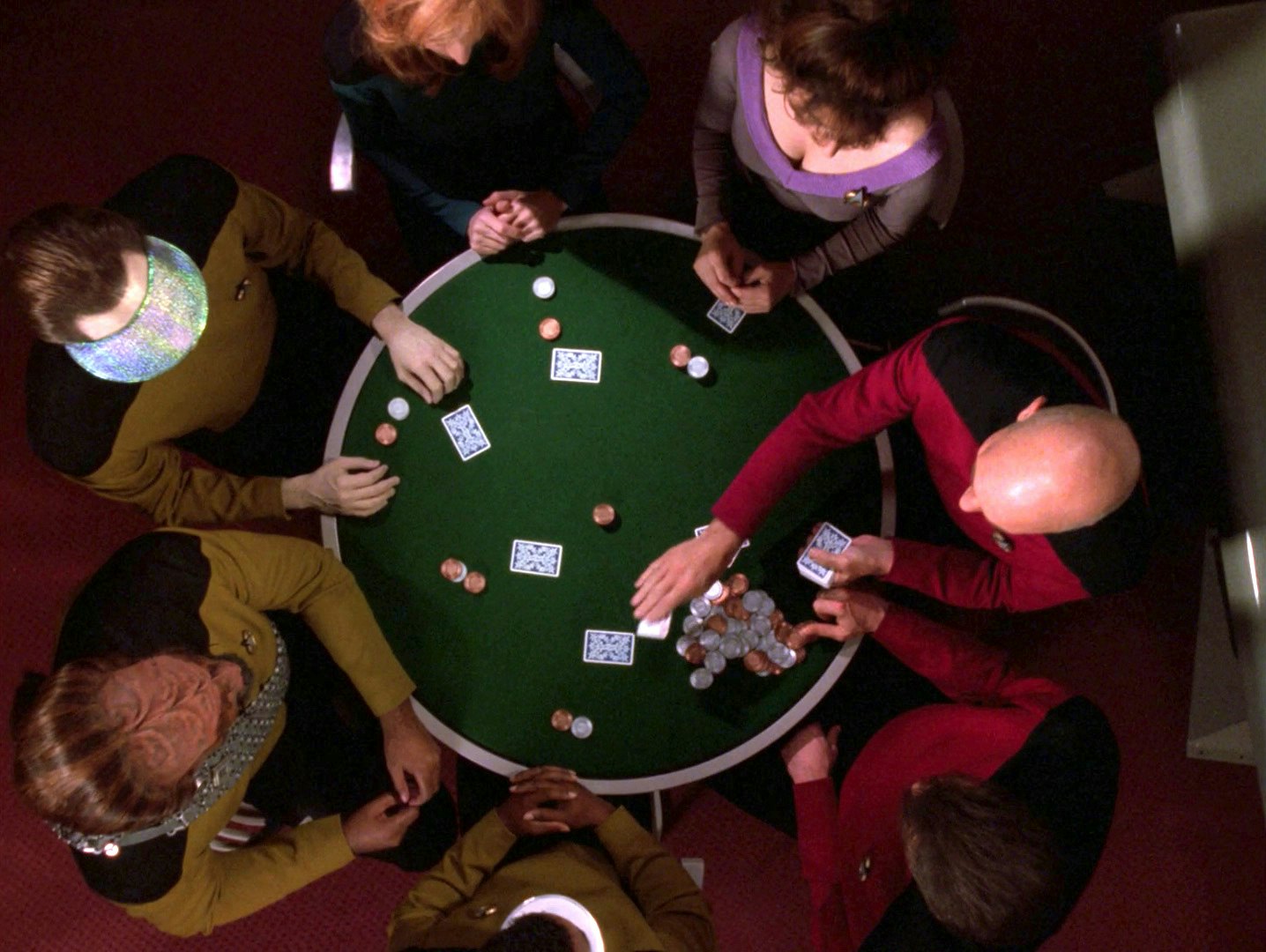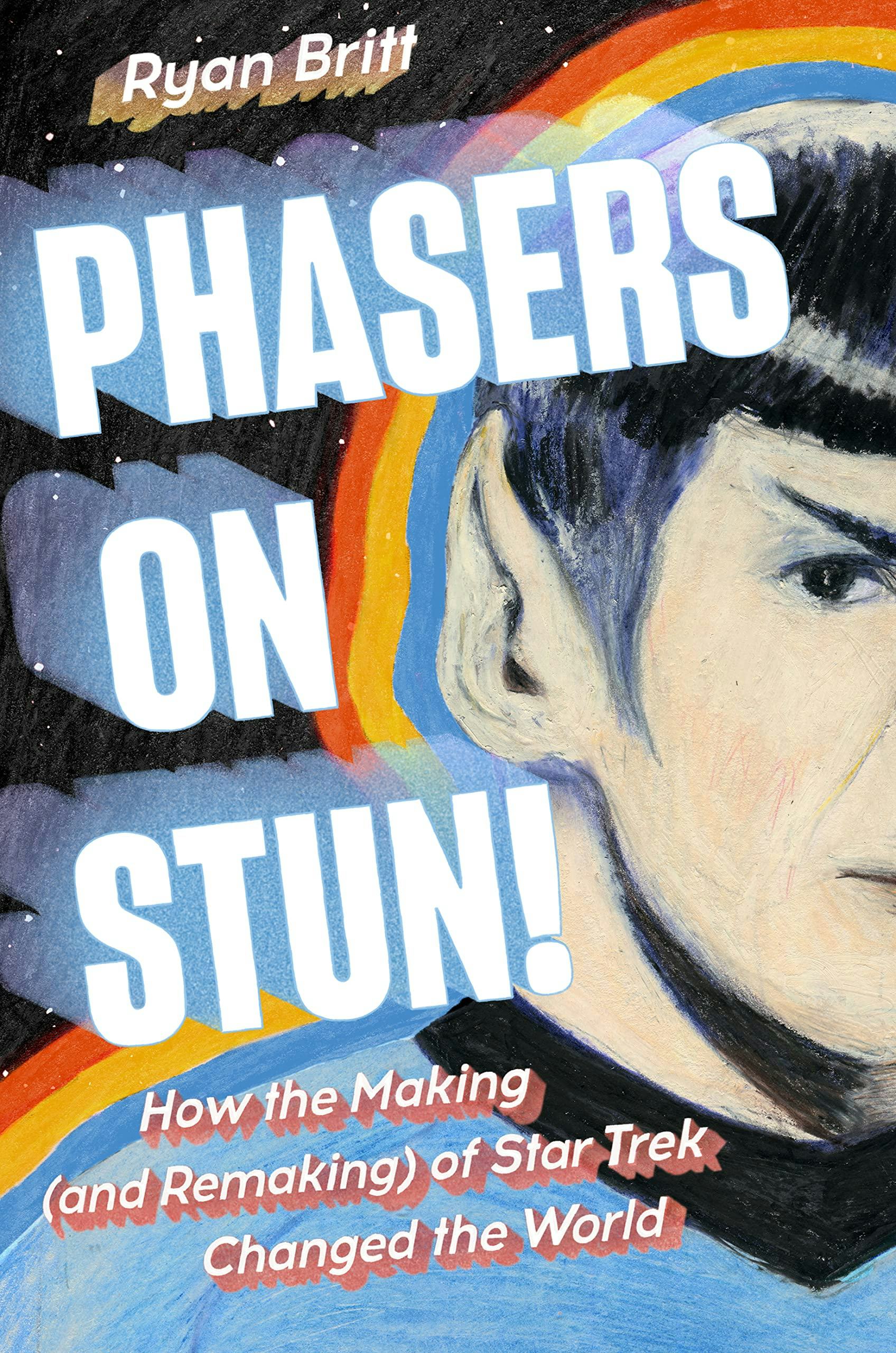
Three decades ago, one sci-fi series rose above the rest to approach the impossible label of perfection. When Star Trek: The Next Generation aired its triumphant finale on May 23, 1994, it was almost an entirely different series than when it began in 1987. Back then, Next Gen was an awkward remake of The Original Series. When Next Gen ended, it was Star Trek, transforming a 1960s curio into a format destined to survive and evolve for another quarter century.
To say there is no modern Star Trek without The Next Generation is obvious, but what gets missed in countless reassessments is that most adoration for Next Gen can be qualified non-linearly. Just as Captain Picard discovers that a time paradox is the key to saving the galaxy, the success of the TNG finale “All Good Things...” didn’t just come from the fact that it ended a hit show on a high note; instead, it revised Next Generation history to make the beginning of the show feel as good as the ending.
“All Good Things...” was presented as a two-hour finale, just like TNG’s pilot, “Encounter at Farpoint.” Captain Picard (Patrick Stewart) finds himself jumping between the present, a past before when we meet him in “Farpoint,” and a future where he’s a doddering old man with memory problems. Borrowing from Kurt Vonnegut’s classic novel Slaughterhouse-Five, Picard is unstuck in time. It’s soon revealed that the meddling space god Q (John de Lancie), intent on teaching Picard a lesson before it's too late, is behind these time shifts. The entire history of everything is on the line as Q reveals a spatial anomaly centered around Picard that threatens to wipe out humanity.
In the past, Picard is tasked with convincing characters who barely know him that he’s their beloved leader, while in the future, the close-knit TNG family has splintered. To save the day, Picard has to heal old wounds and get a fractured Enterprise crew back together for one last ride. In the end, Picard must order three versions of the Enterprise — past, present, and future — to their utter destruction. But it’s okay, no one really lost their lives. The anomaly is erased, and Q dryly tells Picard, “If it puts your mind at ease, you've saved humanity... once again.”

Part of what makes “All Good Things...” so on-brand for TNG is that there’s no real villain, and once the quest is over its stakes seem ridiculously low. You’re never actually worried the episode will end with humanity getting wiped out by a time anomaly, meaning the true stakes of the episode are emotional. The journey was about understanding the Starfleet family that’s formed over the last seven years.
If this sounds overly sentimental, you’re not wrong, but what made “All Good Things...” a successful finale is that it celebrated what Next Generation had become: a warm, allegorical, pseudo-family show about people more than sci-fi concepts. That Picard, Geordi, and Data share an epiphany about a time paradox, and that realization saves the day, feels like a denouement that could have occurred in any episode. But in the final analysis, the show was about this generation of heroes, and how they came together as a family, not a crew.
“That to me is one of the best series finales ever,” Marvel’s Kevin Feige said in 2018. “Picard went and played poker with the crew, something he should have done a long time ago, right?” It’s certainly a memorable moment for fans. The stiff, distant Picard had grown closer and more vulnerable over the years, but he’d never joined his crew’s card game, a tradition first introduced way back in one of TNG’s best episodes, Season 2’s “The Measure of a Man.” But now, as Picard sits down and looks at his crew, he realizes it's okay for him to be happy. There are no hard decisions to make, and he doesn’t need to slip into his signature stoicism to seem strong. He can just be there with the people he loves.

This moment was echoed in the 2023 series finale of Picard, and for good reason. Since the end of The Next Generation, the series' reputation is greater than the sum of its parts. While the first two seasons have standout moments, the show didn’t find its feet until 1990. Even its final season wasn’t its best, even if the finale is excellent.
As the most venerable and flexible sci-fi franchise of them all, Star Trek has proven that characters and tones can change radically while still feeling like part of a cohesive whole. But as an ensemble show about people, The Next Generation became something special in its finale. The Enterprise doesn’t warp into its next adventure; it just gently cruises through space. Fans didn’t want the show to end, but not because they craved more adventures. We just wanted to keep hanging out with these people, because the true triumph of The Next Generation is that it felt like home.
Phasers on Stun!: How the Making — and Remaking — of Star Trek Changed the World








